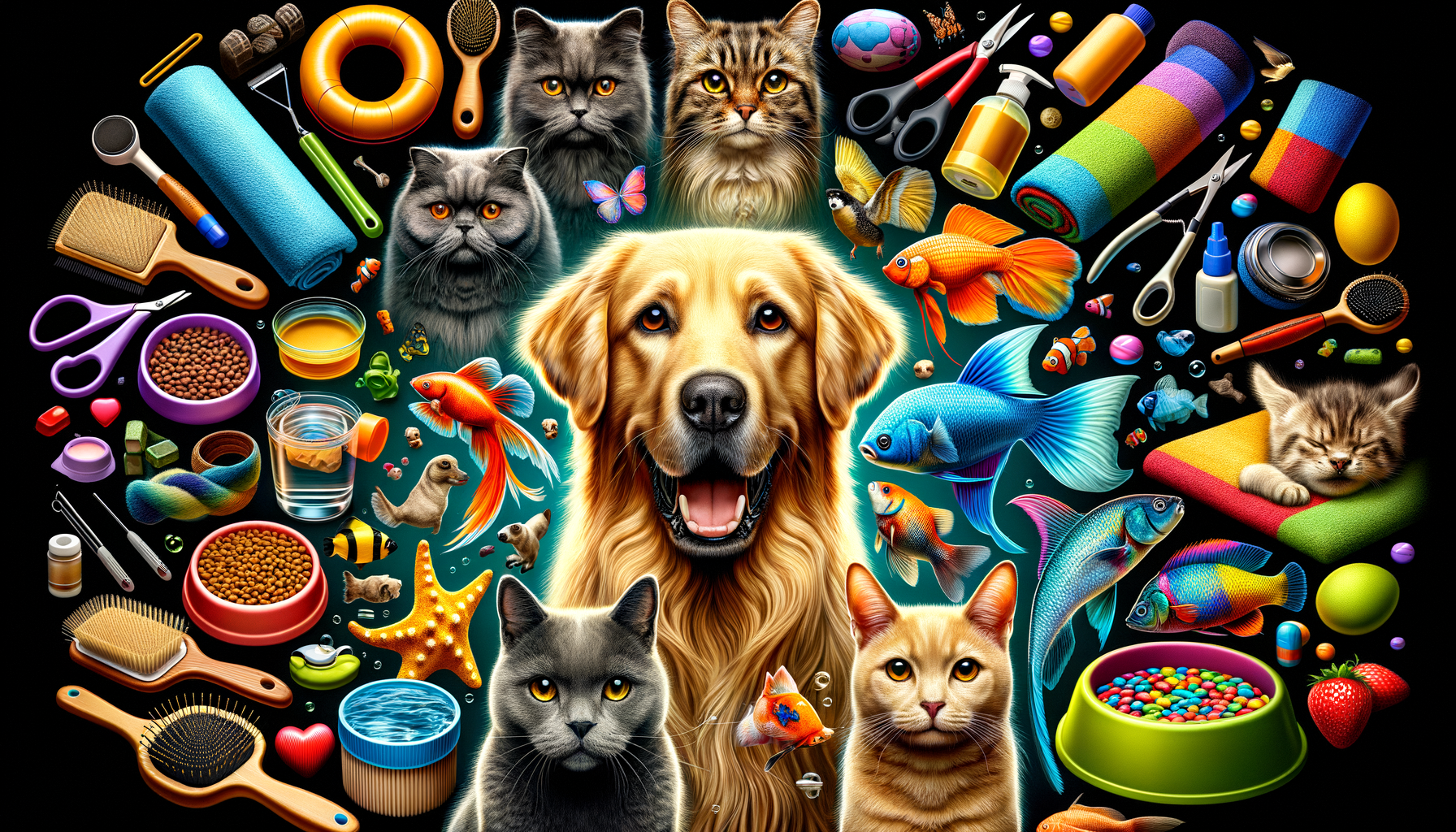Introduction to Pet Care and Health
Pets are cherished members of the family, bringing joy, companionship, and countless memories. However, with the joy of pet ownership comes the responsibility of ensuring their health and well-being. Proper pet care and health management are essential to ensure your furry, feathered, or scaly friends lead a long, happy life. This comprehensive guide explores various aspects of pet care, from regular veterinary visits to grooming and nutrition, providing valuable insights for pet owners.
Regular Veterinary Check-Ups: A Pillar of Pet Health
One of the most crucial aspects of pet care is regular veterinary check-ups. Routine visits to the vet help in early detection and prevention of potential health issues. During these visits, veterinarians perform comprehensive examinations, administer vaccinations, and provide guidance on maintaining your pet’s health. Regular check-ups are not just for addressing immediate concerns but also for establishing a baseline of health, which is vital for tracking changes over time.
Veterinary visits can include:
- Physical examinations to assess overall health.
- Vaccinations to prevent diseases.
- Parasite control to manage fleas, ticks, and worms.
- Dental check-ups to prevent oral diseases.
By ensuring that your pet receives regular veterinary care, you can catch health issues early, potentially saving on costly treatments down the line and ensuring a longer, healthier life for your pet.
Grooming: More Than Just Aesthetic Appeal
Grooming is often perceived as merely an aesthetic practice, but it plays a significant role in maintaining a pet’s health. Regular grooming helps in the early detection of skin issues, parasites, and other health problems. It also promotes healthy skin and fur, reducing the risk of infections and matting.
Key grooming practices include:
- Brushing to remove loose hair and prevent matting.
- Bathing to keep the skin clean and free from parasites.
- Nail trimming to prevent overgrowth and discomfort.
- Ear cleaning to prevent infections.
Incorporating grooming into your pet care routine not only keeps your pet looking their best but also fosters a strong bond between you and your pet, as it involves close interaction and trust-building.
Nutrition: The Foundation of Good Health
A balanced diet is fundamental to maintaining a pet’s health. Proper nutrition supports growth, energy levels, and the immune system. It is crucial to choose food that meets the specific dietary needs of your pet, considering factors such as age, breed, and health conditions.
When selecting pet food, consider:
- Quality of ingredients – opt for whole foods over fillers.
- Specific dietary requirements – some pets may need grain-free or high-protein diets.
- Portion control – to prevent obesity and related health issues.
- Hydration – ensure your pet has access to fresh water at all times.
Consulting with a veterinarian can provide personalized dietary recommendations, ensuring your pet receives the nutrients they need for a vibrant and active life.
Exercise and Mental Stimulation: Keeping Pets Active and Engaged
Exercise is vital for maintaining physical health and preventing obesity in pets. It also provides mental stimulation, which is crucial for preventing boredom-related behaviors such as chewing and digging. Different pets require different levels of activity, so it’s important to tailor exercise routines to suit your pet’s needs.
Benefits of regular exercise include:
- Improved cardiovascular health.
- Stronger muscles and bones.
- Reduced behavioral issues.
- Enhanced mental well-being.
Incorporating activities like walks, playtime, and interactive toys can keep your pet physically fit and mentally sharp, contributing to their overall happiness and longevity.
Conclusion: Commitment to Lifelong Pet Care
Caring for a pet is a rewarding journey that requires dedication and knowledge. By focusing on essential aspects such as veterinary care, grooming, nutrition, and exercise, pet owners can ensure their companions lead healthy and fulfilling lives. Remember that every pet is unique, and understanding their specific needs is key to providing the best care possible. Embrace the joy and responsibility of pet ownership, and your pet will thrive as a cherished member of your family.




Leave a Reply